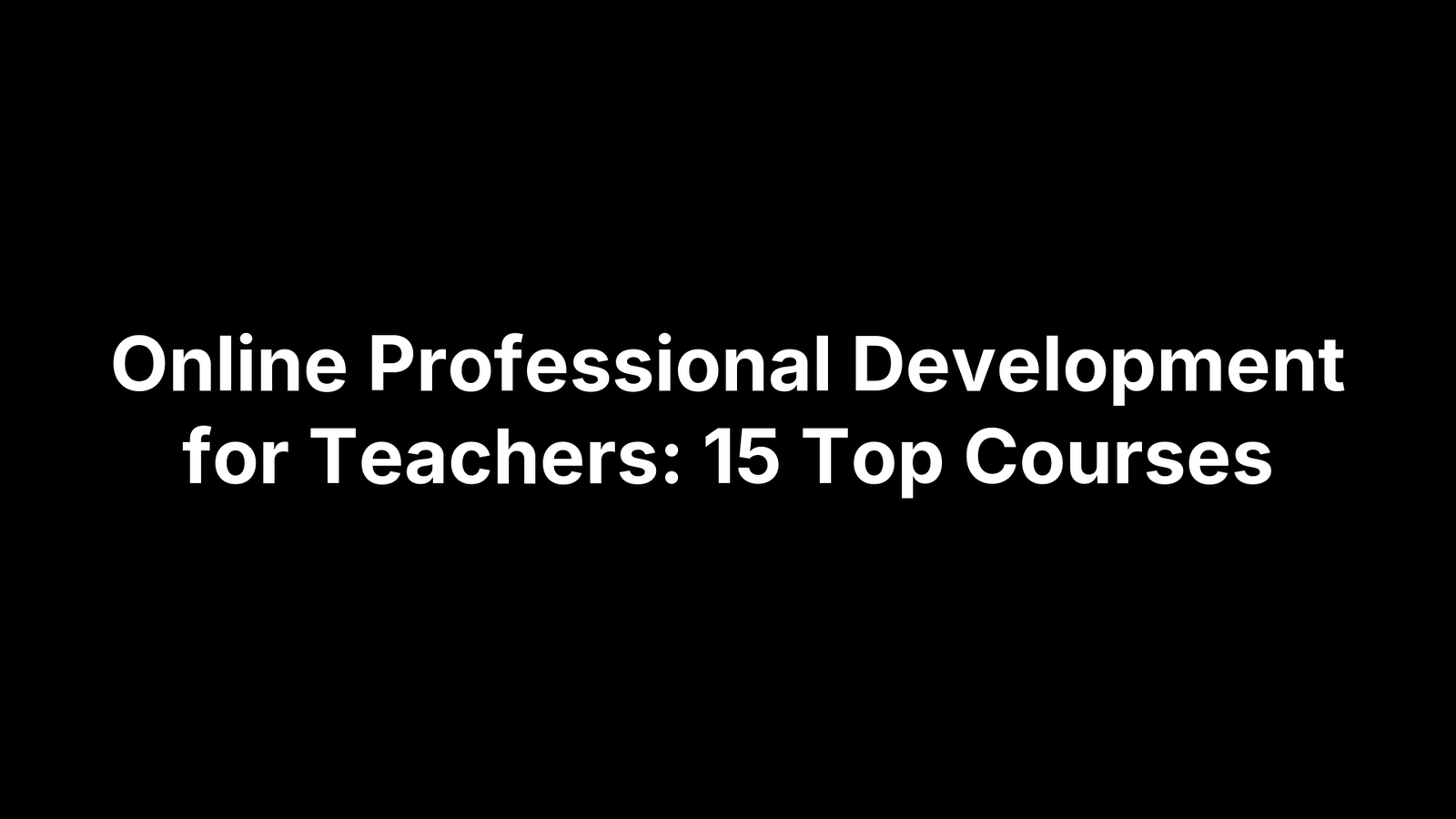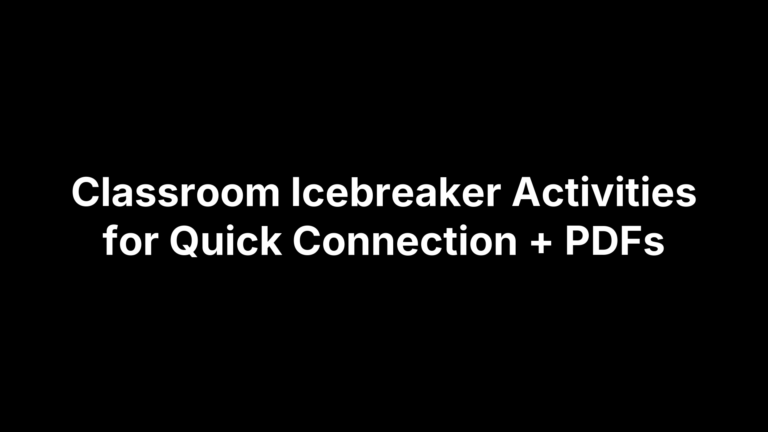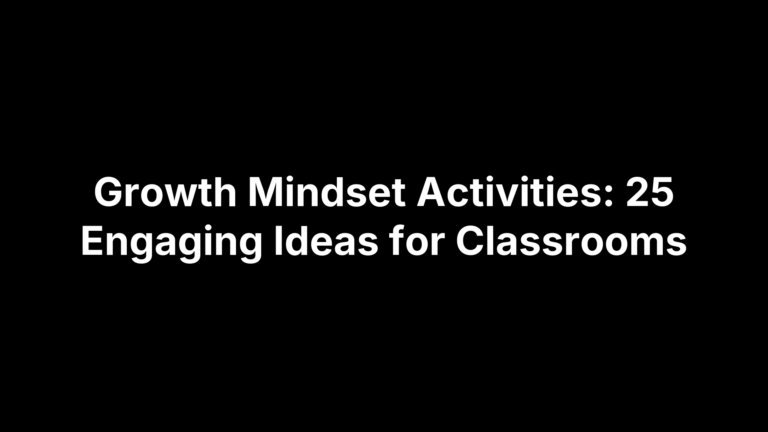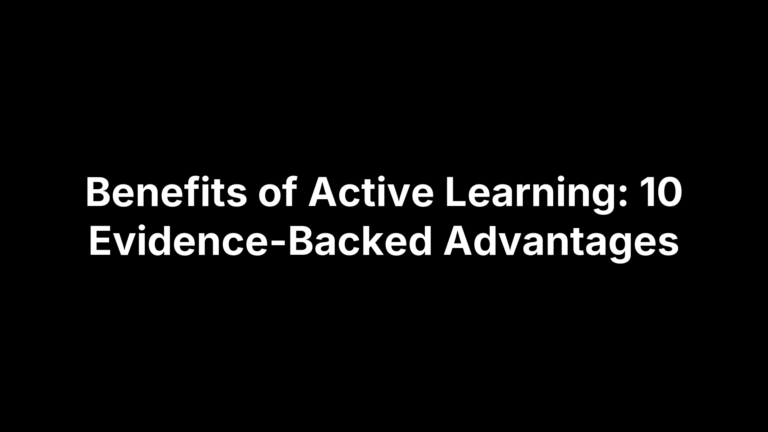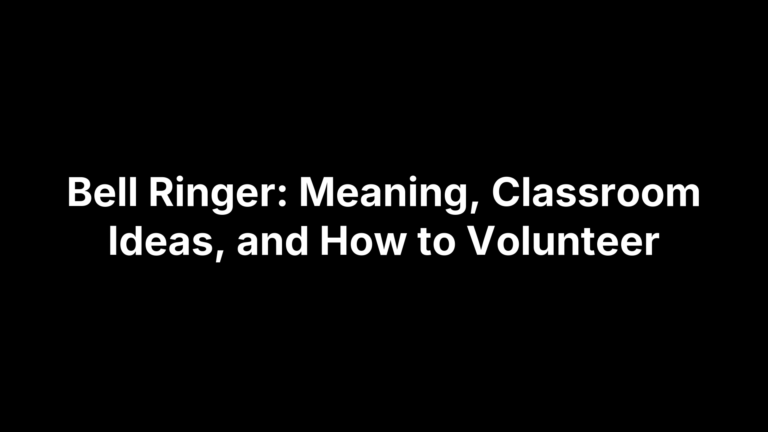The Best Online Professional Development for Teachers (With Certificates)
You already juggle lesson planning, grading, and hallway duty—hunting down professional-development hours shouldn’t feel like a second job. Whether your state calls them CEUs, CPDUs, or graduate credits, the courses below can be completed from a laptop on your own schedule, many at no cost. Each option issues a verified certificate that meets most district or licensing requirements, so you can stop chasing signatures and get back to teaching.
Online professional development goes beyond scrolling through articles or watching a quick YouTube tutorial: think interactive modules, live webinars, micro-credentials, and even data-driven simulations that mirror real classroom decisions. To help you choose the right fit, we highlight five questions teachers usually ask first—price, proof of credit, time commitment, subject focus, and tech needs. The 15 courses that follow hit every combination: free and paid, one-hour refreshers and semester-long cohorts, broad pedagogy and niche STEM or SEL tracks. Under every listing you’ll find a takeaway tip so you can enroll with confidence.
1. The Cautiously Optimistic Teacher – AI-Powered Instruction & Differentiation Series
First up is our own bite-sized series for teachers who want results, not marathon webinars. It proves how powerful online professional development for teachers becomes when AI tools are immediately classroom-ready.
Snapshot
Each micro-course runs 1–2 hours, is self-paced and mobile friendly, and issues instant certificates; complete all ten modules and unlock a 15-hour transcript accepted by most districts.
Standout Features
- Hands-on walk-throughs of the Worksheet Maker, Differentiated Instruction Helper, and Report Card Commentor
- Downloadable lesson templates for classics like To Kill a Mockingbird plus blank unit planners
- Optional live Q&A sessions so you can troubleshoot AI prompts in real time
Who Should Take It
Middle and high-school educators who crave faster planning or want to personalize tasks without burning prep periods.
Skills & Outcomes
- Generate standards-aligned worksheets in under five minutes
- Build Tier-1, Tier-2, and Tier-3 supports from a single prompt
- Embed growth-mindset language pulled from the Brain Builders Workshop
How to Get Started
- Create a free account at teachers-blog.com
- Select “AI-Powered Instruction” and complete the two-minute pre-assessment
- Book an optional 30-minute live Q&A inside the dashboard
2. edWeb.net – Live & Archived Webinars with Certificates
If you need hours fast, edWeb is the espresso shot of online professional development for teachers. Most sessions run 60 minutes, cost nothing, and generate a PDF certificate you can download the moment the exit quiz is done—no waiting for a facilitator’s signature.
Snapshot
- Library of 3,000+ webinars, all captioned and searchable by grade, subject, or PD requirement
- Live events daily; archived recordings available 24/7 for self-paced viewing
Standout Features
- Real-time chat lets you swap resources with hundreds of peers
- Topic-based “edCommunities” keep the discussion going long after the webinar ends
Who Should Take It
Teachers who need flexible, zero-cost CEUs for license renewal or want quick ideas for tomorrow’s lesson.
Skills & Outcomes
- Fresh ed-tech tricks, literacy mini-lessons, and classroom-management hacks ready for immediate use
Tips for Success
Turn on calendar reminders, attend live for bonus giveaways, and complete the three-question quiz immediately to auto-save your certificate.
3. PBS TeacherLine – Graduate-Level Online Courses
Looking for something meatier than a one-hour webinar? PBS TeacherLine runs instructor-facilitated courses that feel like mini–graduate seminars but still fit a teacher’s calendar. Because the catalog is backed by a public-media powerhouse, districts recognize the rigor—and many offer lane-change credit for completed cohorts.
Snapshot
- 15–45 instructional hours per course
- $125–$495, with an optional 3 graduate credits through partner universities
- Six-week pacing, weekly deadlines, and a verified completion certificate
Standout Features
- Research-based readings paired with classroom application tasks
- Discussion boards moderated by a trained facilitator
- Built-in media library of PBS videos, interactives, and lesson plans
Who Should Take It
Educators who need accredited credits for salary advancement or license renewal and value peer interaction over solo learning.
Skills & Outcomes
- Deepen content knowledge in STEM, literacy, or early childhood
- Create downloadable lesson artifacts ready for immediate use
- Hone reflective practice via weekly journals
How to Enroll
Browse the course catalog, confirm your district accepts PBS/graduate credit, then register before the published start date—seats cap quickly.
4. Google for Education Teacher Center – Certified Educator Levels 1 & 2
If your district lives inside Google Workspace, these free, self-paced modules are some of the quickest ways to earn recognized online professional development for teachers while turbo-charging daily workflow. Passing the optional certification exams unlocks a digital badge many districts accept as proof of tech proficiency and continuing-ed hours.
Snapshot
- 13 bite-size units per level; most teachers finish Level 1 in 6–8 hours
- Training content is free; Level 1 exam $10, Level 2 exam $25
- Printable certificate and badge valid for three years
Standout Features
- Interactive simulations that mimic real Docs, Slides, and Classroom tasks
- Scenario-based quizzes that reinforce best practices for accessibility and privacy
Who Should Take It
Teachers running 1:1 Chromebooks, tech coaches, or anyone tasked with supporting colleagues on Google tools.
Skills & Outcomes
- Automate feedback with comment banks and
=importRangegradebooks - Use Classroom’s originality reports to curb plagiarism
- Activate ChromeVox and Live Captions to meet UDL guidelines
Exam Prep Advice
Block a three-hour window, keep a second device handy for resources, and practice the 3-2-1 reflection method: 3 shortcuts mastered, 2 workflow tweaks, 1 accessibility feature to model tomorrow.
5. Coursera – “Teaching Character and Creating Positive Classrooms” (Relay GSE)
Character education isn’t another poster on the wall—it’s a daily routine that shapes how students treat one another and approach learning. Relay Graduate School of Education distilled its graduate course into a compact MOOC on Coursera, making it one of the most practical pieces of online professional development for teachers who want evidence-based SEL without a hefty price tag.
Snapshot
- 14 hours total, broken into four self-paced modules
- Audit free; pay about $49 for an optional shareable certificate and CEU documentation
Standout Features
- Video case studies that model “warm strict” expectations
- Guided reflection journals auto-saved in Google Docs for easy sharing with mentors
Who Should Take It
K–12 teachers aiming to weave the 7 R’s—Relationships, Rules, Routines, Rights, Responsibilities, Respect, Rewards—into classroom culture.
Skills & Outcomes
- Script character-building “narrated walkthroughs” for transitions
- Design weekly rituals that reinforce respect and responsibility
- Track behavior data with the provided
=COUNTIFspreadsheet template
Implementation Tip
Use the downloadable lesson planner to select one Character Focus (e.g., perseverance) each week; link it to a tangible routine like exit tickets or peer shout-outs so students see virtues in action.
6. Harvard Online – “Introduction to Data Wise”
When assessment numbers pile up, the hardest part is turning them into a plan. This short Harvard MOOC shows exactly how, making data literacy feel less like statistics class and more like practical online professional development for teachers.
Snapshot
- 8-week schedule; about 10–12 total hours
- Free to audit; $149 for verified certificate you can submit for CEUs
- Hosted on edX with mobile app access
Standout Features
- Step-by-step walkthrough of the eight-stage Data Wise Improvement Process
- Downloadable Data Action Planning template and video exemplars from real schools
- Optional peer forums moderated by Data Wise coaches
Who Should Take It
Instructional coaches, PLC leads, or any teacher asked to present benchmark results at grade-level meetings.
Skills & Outcomes
- Organize formative and summative data in a single dashboard
- Write precise learner-centered problems of practice
- Plan quick “impact checks” to see if an adjustment worked
Getting the Most Out of It
Gather last semester’s unit assessments before you start; completing the capstone with authentic numbers turns the final project into a ready-to-share improvement roadmap.
7. University of San Diego PCE – Self-Paced Professional Certificates
Need graduate-level credit without a semester-long commitment? USD’s Professional & Continuing Education program turns online professional development for teachers into on-demand, university-backed micro-courses you can finish on your own clock.
Snapshot
- 1–3 graduate credits per course
- Tuition $129–$405; six-month access window
- Official transcript and printable certificate mailed within two weeks
Standout Features
- Research-based video mini-lectures plus downloadable planning templates
- Choice of reflection paper or classroom project as the final assessment
- Integrated gradebook shows real-time progress toward credit hours
Who Should Take It
Classroom teachers hunting for salary-lane or license-renewal credits and wanting topics like Dynamic Vocabulary or Rethinking Grading delivered in bite-size chunks.
Skills & Outcomes
- Design tiered vocabulary routines aligned to
CCSS.ELA-LITERACY.Lstandards - Audit grading policies for equity, then build a standards-based rubric you can deploy next unit
Enrollment Checklist
- Verify your state or district accepts USD graduate credit.
- Request the syllabus for pre-approval.
- Enroll, download the pacing guide, and calendar two work blocks per week to stay on track.
8. ed2go Teacher Professional Development Catalog
Need structure but hate rigid cohort dates? ed2go lets you start nearly any Monday, so your PD clock syncs with your planner—not the other way around.
Snapshot
- Six-week instructor-led courses; new sessions every month
- $125–$155 with 24/7 access; CEUs or 2.4 PDHs per course
Standout Features
- Weekly “virtual office hours” for real-time questions
- Mobile-friendly lessons and auto-graded quizzes that unlock the next module
Who Should Take It
Busy educators, long-term subs, and paraprofessionals who need flexible, low-cost online professional development for teachers.
Skills & Outcomes
- Popular tracks on inclusion strategies, behavior management, and Google Tools collaboration
- Create a ready-to-use action plan during the final discussion assignment
Time-Management Tip
Block two 45-minute slots each week—one to skim readings, one to tackle the quiz—so you finish before the next unit drops.
9. Model Teaching – License Renewal & Salary Advancement Courses
Model Teaching is a no-frills workhorse that lets you rack up verified PD hours without juggling cohort calendars or waiting for transcripts.
Snapshot
- 1–4 graduate-credit courses; $95–$525
- Self-paced with 12-month access
- Instant certificate plus optional university transcript
Standout Features
- “Build-Your-Own Bundle” discounts to hit 20, 40, or 60-hour targets
- Rubric-guided projects that double as ready-to-teach lessons
Who Should Take It
Teachers in states with strict renewal hour counts (TX, FL, IL) or anyone eyeing a salary lane jump who needs proof fast.
Skills & Outcomes
- Draft differentiated lesson plans aligned to UDL and state standards
- Apply STEP-by-STEP data analysis to tweak instruction
How Assessment Works
Upload a lesson artifact or reflective paper; a certified evaluator scores it within 48 hours, unlocks feedback, and auto-generates your printable certificate.
10. Canvas Network – “Blended Learning Practice”
Canvas Network’s Blended Learning Practice is a community-driven MOOC that shows you how to mix in-person teaching with online elements without turning your classroom into a tech circus. Over five weeks you’ll prototype, test, and refine a blended lesson while swapping feedback with teachers around the globe—all for free.
Snapshot
- 5-week asynchronous course hosted on Canvas Network
- Free enrollment; optional Credly badge on completion
Standout Features
- Peer-review workflow mirrors student feedback cycles
- Design-thinking sprints guide you from ideation to launch
Who Should Take It
- Educators shifting from fully online back to hybrid or station rotation
Skills & Outcomes
- Outline station-rotation, flipped, and flex schedules that respect seat-time rules
- Curate digital content and monitor engagement with Canvas analytics
Common Pitfall to Avoid
Overloading students with too many tools is the number-one complaint; the course emphasizes a “less-is-more” rule—two core platforms plus one backup are plenty.
11. Microsoft Learn Educator Center – MIE Certification Path
Microsoft’s Learn Educator Center turns your daily use of Teams, OneNote, and Flip into verifiable PD hours. The free MIE route is a quick win for districts already running Microsoft 365 and for teachers hunting recognizable online professional development without cracking open the wallet.
Snapshot
- Free, self-paced learning paths; core track takes 4–6 hours
- Short knowledge checks after each mini-lesson; 80 % average unlocks the Microsoft Innovative Educator (MIE) badge
- Printable transcript lists estimated seat time for CEU submission
Standout Features
- Interactive sandbox lets you practice inside a live Teams environment
- Step-by-step Immersive Reader and Translator tutorials for accessibility compliance
Who Should Take It
- Classroom teachers, SPED specialists, and tech coaches in Microsoft 365 schools
- Educators needing quick, documented hours for mid-year evaluations
Skills & Outcomes
- Set up Class Teams with breakout channels in under five minutes
- Embed formative quizzes with Forms and auto-sync scores to OneNote
Badge Maintenance
Complete two new micro-courses each year to keep the credential current—an easy way to bank future PD hours.
12. Virtual Virginia Professional Learning Program
Virtual Virginia’s PD catalog proves you don’t have to live in the Commonwealth to access affordable, standards-aligned training. Courses blend live webinars with self-paced tasks, so time zones never get in the way.
Snapshot
- Free 1-hour webinars plus 4-week facilitated courses under $45
- Certificates for 5–30 hours delivered instantly via Canvas LMS
Standout Features
- Focus on digital citizenship, virtual classroom management, and equity in online spaces
- Optional “coaching circles” for personalized feedback
Who Should Take It
Distance-learning teachers nationwide, mentors building virtual teaching capacity, and ed-tech coordinators.
Skills & Outcomes
- Design engaging asynchronous lessons with Canvas or Blackboard templates
- Create SEL check-ins and discussion norms that keep webcams on and minds engaged
Insider Tip
Stack the free “Virtual Teaching 101” webinar with the low-cost “Student Wellness” session—you’ll hit many districts’ annual SEL + tech requirements in one go.
13. Learners Edge Graduate Credit Courses
Need master’s-level credits without stalling your momentum mid-semester? Learners Edge partners with regionally accredited universities to offer asynchronous courses teachers can finish in as little as four weeks—then cash in for salary lane movement or state renewal.
Snapshot
- 3 graduate credits per course
- Tuition $425–$645, all materials included
- 6-month access window; digital transcript within two weeks
Standout Features
- Dedicated course advisor to troubleshoot requirements
- Choice of written paper or classroom project as the final artifact
Who Should Take It
Educators eyeing master’s equivalency credits, career changers completing licensure catch-up, and anyone who prefers flexible pacing over fixed cohorts.
Skills & Outcomes
- Apply trauma-informed strategies, arts integration, or equity frameworks to an existing unit
- Compile a ready-to-submit professional portfolio for evaluation committees
Budget Hint
File your district’s tuition-reimbursement form before enrolling—Learners Edge issues itemized receipts and W-9 paperwork that accounting departments love.
14. National Geographic Educator Certification
National Geographic’s free Educator Certification program turns curiosity into a recognized credential by guiding teachers through inquiry, exploration, and storytelling. It folds seamlessly into any content area while meeting many districts’ PD hour rules. Completion typically documents 20+ PD hours toward license renewal.
Snapshot
- Free, self-paced modules (~6 hours) + capstone fieldwork (~14 hours)
- Digital badge and entry to global educator network
- Start anytime; finish at your pace within one semester
Standout Features
- Mentor feedback on your filmed lesson
- Geo-Inquiry framework resources
- Access to high-resolution maps and ArcGIS StoryMap templates
Who Should Take It
Science, social studies, and ELA teachers who want authentic global citizenship projects without pricey travel.
Skills & Outcomes
- Facilitate student-driven investigations using the Q–Q–Q chart (question, collect, quality)
- Coach learners to craft multimedia stories that spur local action
Fieldwork Suggestion
Survey biodiversity on the school grounds or map neighborhood food deserts—both satisfy the capstone and require only a phone camera.
15. Waterford Reading Academy – Literacy Professional Learning Modules
Early reading success hinges on teacher know-how, but carving out time for phonics refreshers can feel impossible. Waterford Reading Academy solves that with bite-size, evidence-based modules you can finish during a planning period—and still walk away with printable proof of professional learning.
Snapshot
- Free, self-paced lessons, 1–3 hours each
- Instant PDF certificate worth equivalent PD hours
- Works on any device and auto-saves progress
Standout Features
- Video demos of research-validated phonological routines
- Downloadable family-engagement packets in English and Spanish
- Built-in progress check quizzes to lock in mastery
Who Should Take It
K–3 teachers, reading specialists, and RTI/MTSS leads needing quick literacy hours that align with Science of Reading guidelines.
Skills & Outcomes
- Diagnose phonological awareness with five-minute screeners
- Plan explicit instruction for blending, segmenting, and automatic word recognition
- Leverage home-connection resources to extend practice beyond school
Implementation Tip
Schedule the complimentary 30-minute coaching call after your first module; the coach helps translate strategies into tomorrow’s mini-lesson plan.
Wrapping It Up
Online professional development doesn’t have to mean marathon Saturdays in a hotel ballroom. The 15 options above let you bank verified hours, graduate credit, or shiny new badges without leaving your classroom—or your couch. More important, each course turns new knowledge into something tangible: a data dashboard, an AI-generated worksheet, a blended-learning routine, or a student-led inquiry project you can launch next period.
Here’s a simple roadmap: pick one bite-sized course (edWeb, Waterford, or our AI micro-module) and finish it this week to get momentum. Then pencil in a longer, credit-bearing program—maybe Harvard’s Data Wise or a three-credit Learners Edge course—for a grading-period break when you can dive deeper. By staggering short wins with bigger goals, you’ll keep your license current and your teaching toolbox fresh all year.
Curious for more classroom hacks and AI-powered planning tips? Swing by The Cautiously Optimistic Teacher and keep the learning rolling.
